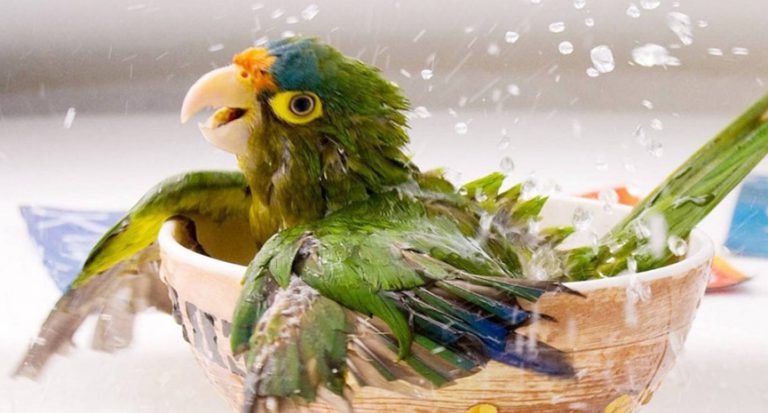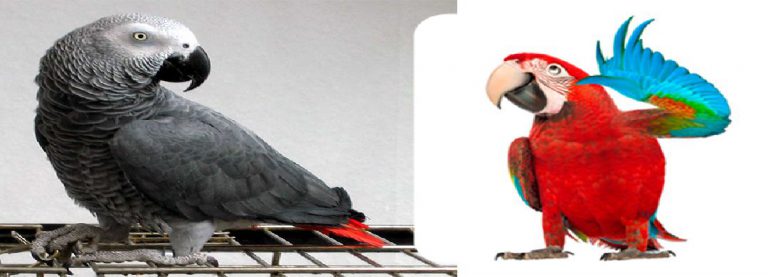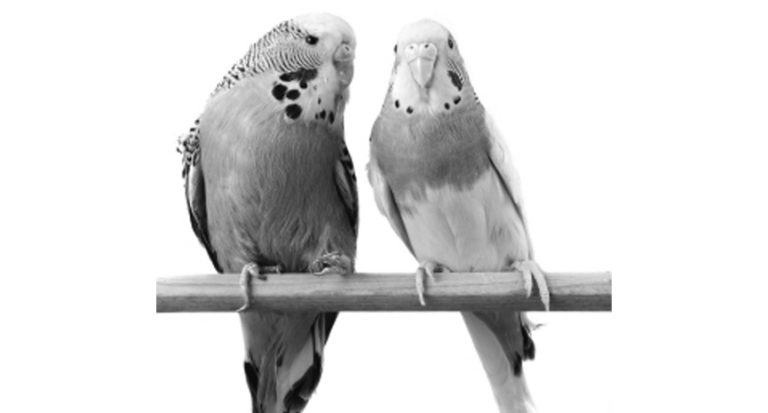If you believe the economy is improving, you’ve likely never met someone who still can’t afford a can of cat food. So one man started a non profit that funds “Pet Food Stamps” for lower level income animal owners. Marc Okon, who has worked as a stockbroker, entrepreneur and business consultant, has a friend from his old neighborhood in Bayside, Queens, N.Y. He’s known her since age 10. Her parents died. She fell on hard times. And the economy hasn’t come back for her yet. “She told me she sometimes fed her cat before herself,” Mr. Okon said in a telephone interview.
Last year, as headlines raged about a strengthening economy, Mr. Okon started a privately funded nonprofit called Pet Food Stamps. People who are already on government assistance can apply for free pet food.
The U.S. government is not involved. Again: not involved. Your tax dollars are not supporting someone’s right to own a calico or corgi.
The program is open to people already receiving the Supplemental Nutrition Assistance Program (aka food stamps) or who are living at or below the poverty level.
No money or electronic benefit cards change hands. If you’re approved, pet products will be shipped to your home free of charge.
The group has been swamped with more applications than his staff of a dozen people can readily process. Most applicants send letters detailing how they lost their jobs to outsourcing, their homes to foreclosure or their health to disease or accident.
“I just heard from a lady in North Carolina who has an autistic son whose only companion is a Jack Russell Terrier,” he said. “It’s cookie-cutter sadness. …Little details change but the gist of each story is the same.”
This begs the question: Should poor people even have pets?
Some would say “not if they can’t afford to feed them.” But keep in mind that some pet owners who once made good money have fallen on hard times, thanks to unemployment or illness or some other factor. Others have always lived close to the bone, as it were, but are willing to do without certain comforts in order to have the love and loyalty of a companion animal. Hard to argue either side of the issue.
And here’s one line of thinking: If you have major consumer debt and/or an uncertain job situation, don’t adopt a pet. You could wind up with an even heavier debt load, especially if the animal gets sick or injured.
But if you already have a pet and believe its companionship irreplaceable? Keep going.
Despite nominal improvements in the unemployment rate, the U.S. Department of Agriculture counts more than 47 million people in its food stamp program–nearly one out of every seven Americans!
Rather than pin all your hopes on the Pet Food Stamps program–which surely can’t help everyone who applies–start searching for other options.
A great source of information is the “Having trouble affording your pet?” section of the Humane Society of the United States website. It’s a long, long list of regional and national organizations that offer food, supplies, vet care and even grooming.
Note: The page also has a free or low-cost spaying/neutering link. Use it. If you’re having trouble caring adequately for the pets you already have, don’t allow them to make more mouths that can’t be fed.
Food stamps cannot be used to purchase pet food. But they can be used to buy Coca-Cola. Go figure?
Recently the National Center for Public Research complained at Coca-Cola’s annual shareholder meeting in Atlanta that the beverage maker lobbies heavily to keep soda on the list of wholesome things that food stamps can buy.
Taxpayers subsidize about $4 billion worth of soda sales each year, the group groused, even as the sugary drink contributes to an obesity epidemic that drives up all related health-care costs.
But you know what they say? Food stamps go better with Coke.
Mr. Okon, 36 years old, said he spent his 20s chasing money, first as a stockbroker, then as the founder of a company that sold pay phones as cellphones displaced them. He also did consulting work that took him into the bowels of many other companies.
He said he briefly worked for a firm that sold dubious medical benefits to seniors in the South. “Their whole corporate philosophy was to manipulate seniors who didn’t have any type of insurance,” he said. “I could only do that for about a week and half.”
Millions of pets are surrendered to shelters each year and euthanized because their owners can’t afford to feed them,” Mr. Okun said He is a man so disgusted with the lack of ethics he witnessed in private enterprise that he founded a nonprofit to hand out dog food. Good for him.
ASPCA
The American Society for the Prevention of Cruelty to Animals (ASPCA) was the first humane society to be established in North America. The organization was founded by Henry Bergh in 1866 on the belief that animals are entitled to kind and respectful treatment at the hands of humans, and must be protected under the law.
Headquartered in New York City, the ASPCA maintains programs that extend their anti-cruelty mission across the country, they are recognized as a national animal welfare organization. They are a privately funded 501(c)(3) not-for-profit corporation.
As the first humane organization to be granted legal authority to investigate and make arrests for crimes against animals, they are wholly dedicated to fulfilling the ASPCA mission through nonviolent approaches. The organization provides local and national leadership in three key areas: caring for pet parents and pets, providing positive outcomes for at-risk animals and serving victims of animal cruelty.
Incorporated in 1866 by a special act of the New York State legislature, the ASPCA helped transform dog pounds into professionally run adoptions facilities to founding an animal hospital that is still running today.
ASPCA, 424 E. 92nd St New York, NY 10128, 212-876-7700
Best Friends Animal Society
In the Big Apple and the tri-state area, Best Friends works to support local organizations focused on saving the lives of shelter pets. They feel promotion of the stability and growth of animal welfare organizations in the New York area is critical to end the killing in shelters and Save Them All. That’s why Strut Your Mutt, an annual Best Friends event, provides much-needed financial support to dozens of local groups. The popular event, which draws dog lovers to Hudson River Park’s Pier 84, has raised hundreds of thousands of dollars, and that money goes directly to participating local rescue groups.
Best Friends Animal Society, 435-644-2001.
Bideawee
For more than 100 years, Bideawee has been a leading pet welfare organization serving metropolitan New York and Long Island. Through a vast array of services Bideawee cultivates and supports the life-long relationships between pets and the people who love them.
Bideawee is the only organization in the metropolitan New York area that has programs, services and staff that are specifically developed and trained to accompany pets and pet lovers on their life-long journey together. These programs range from adoption, veterinary care, training, volunteering, memorial programs and grief counseling so that the organization can be with pets and pet parents through every life stage.
Bideawee has three location to serve the residents of the metropolitan New York area. Bideawee’s office in Manhattan serves as a resource for the five boroughs, Westchester and Fairfield counties. Bideawee in Manhattan is home to an adoption center, animal hospital, Bideawee U, and volunteer programs.
Bideawee, 410 East 38th Street New York, NY 10016, 866-262-8133.
Connecticut Humane Society
The Connecticut Humane Society is the leading resource in the state for companion animal welfare, enriching the lives of families and communities through adoption services, medical care, education, and prevention of cruelty.
The Connecticut Humane Society has a rich history of serving the people and pets. Hartford High School senior, Gertrude O. Lewis, founded the Connecticut Humane Society in 1881. In a day and age when women did not yet have the right to vote, this young lady decried the widespread callous treatment of children, livestock, wildlife, companion animals, and animals used in the workplace and in sport. During that period of rising popular sentiment demanding improved social conditions, she transformed her dismay into responsible action.
For 84 years, they were the only statewide organization offering protective services to children until the State of Connecticut developed the Dept. of Children and Families in 1965. At this point, their primary focus shifted to animals–specifically companion animals (pets). In 1900 their first branch office was opened in New Haven and shortly thereafter branches were established in Bridgeport, New London and Stamford. Today they have full-service shelters located in Newington, Waterford and Westport, and a cat adoption center in New London, CT. With the powerful human-animal bond at the heart of our work, their organization, envisioned by Ms. Lewis, continues to evolve.
Connecticut Humane Society, 455 Post Road East, Westport, CT 06880, 203- 227-4137.
DAWS
For 40 years, Danbury Animal Welfare Society (DAWS) has been dedicated to improving the lives of animals in their community and beyond. Their life-saving work began in 1974 with two community volunteers. Since then, DAWS has been promoting responsible pet guardianship and the humane treatment of animals, while working toward ending animal overpopulation through education and a variety of programs.
DAWS, 147 Grassy Plain Street in Bethel, CT, 203-744-DAWS (3297), daws@daws.org.
House Rabbit Society
House Rabbit Society is a volunteer-based nonprofit organization with two primary goals:
- To rescue abandoned rabbits and find permanent homes for them and 2. To educate the public and assist humane societies, through publications on rabbit care, phone consultation, and classes upon request.
House Rabbit Society believes that ALL rabbits are valuable as individuals, regardless of breed purity, temperament, state of health, or relationship to humans. The welfare of all rabbits is their primary consideration.
It is in the best interest of domestic rabbits to be neutered/spayed, to live in human housing where supervision and protection are provided, and to be treated for illnesses by veterinarians. Domestic rabbits are companion animals and should be afforded at least the same individual rights, level of care, and opportunity for longevity as commonly afforded to dogs and cats who live as human companions.
For general questions please contact Mary Cotter at 914-337-6146.
Nutmeg Clinic
Nutmeg Spay/Neuter Clinic opened August 27, 2012, and has already performed surgeries on more than 7,000 cats and dogs. They provide low-cost spay/neuter for cats & dogs along with other services at the time of surgery throughout Connecticut and beyond.
Their clinic is open Monday through Thursday and performs roughly 25 cat and dog sterilizations per day including vaccinations for rabies and distemper and other services. Their plan is to offer education to the community for responsible pet care, support for feral cat colonies, and work with area rescues to help the animals.
Nutmeg Spay/Neuter Clinic, 25 Charles Street, Stratford, CT 06615, 203-690-1550.
PAWS
Pet Animal Welfare Society (PAWS) is a registered 501(c)3 nonprofit organization in continuous operation since 1962 by Westport, Connecticut resident Betty Long to rescue homeless dogs and place them in permanent homes. PAWS rescues & rehomes approximately 115 dogs and 435 cats annually. Many of the dogs faced euthanasia and most of the cats that get help are strays and abandoned cats. A portion of the pets that come to PAWS have been relinquished by their owners who are no longer able to care for them.
As they are a registered non-profit, all contributions to PAWS are fully tax-deductible as allowed by law. For 37 years, PAWS rented space from local boarding kennels & veterinary hospitals. In 1999, PAWS undertook the task of building a shelter. They moved into their own shelter in 2001 and have greatly increased the number of pets helped. They constantly seek to increase the number of lives they can save by finding adoptive homes for the animals in their care, working closely with other animal groups, and raising funds to secure the supplies and facilities necessary for operation.
PAWS, 504 Main Avenue, Norwalk, CT 06851, 203-750-9572.
Pet Rescue Rx
Pet Rescue Rx, “A Pets Before Profits Pharmacy”. A trusted source for online pet medications, pet supplies and pet food. They support local animal shelters and rescue groups in our area by contributing ALL net profits to these organizations selected by you, their customer. They carry the exact same FDA and EPA approved pet meds that your local veterinarian does, but at significant savings for you. Their pharmacy carries all leading brands, including Frontline Plus, K9 Advantix II, Advantage II, Dasuquin, Greenies and Heartgard. They also offer fast and free shipping to your home on most orders.
Pet Rescue Rx is proud to carry Halo Pet, Newman’s Own Organic Pet Treats and John Paul Pet Products. Your purchase of these products not only supports animal shelters and rescue through Pet Rescue Rx but it also supports the philanthropy of these wonderful companies. Everyone working together to make a difference!
FAQ’s
Why would you start a company to give away all the profits? Here is why. Every year in the United States 5-7 million pets are surrendered to animal shelters. 60-70% are euthanized. Increased funding to shelters and rescues can help increase spays and neuters and decrease pet overpopulation. Pet Rescue Rx is here to provide shelters and rescues this additional funding by the purchases you make. Our business is designed to provide sustained funding for these groups.
What is meant by donating 100% of the net profit? 100% of the net profit means ALL profits after we pay our bills, employees and other overhead costs. We have no high paid executives or stockholders who want a return on their money. What we do have is a desperate financial need by animal shelters and rescue groups.
ROAR
The human/animal bond is as old as human history. They cherish our pets for the unconditional love and acceptance they give them. Ridgefield Operation for Animal Rescue (ROAR) exists to strengthen that bond and rescue the pets left destitute when the bond of that trust is broken.
ROAR was founded on the simple principle that they would provide animals in need with the same love, care and compassion they show our own family pets. Since they opened our doors in 2005, they have placed almost 4,000 neglected and unwanted cats and dogs in caring homes throughout Ridgefield and our surrounding towns.
But their mission does not end at their shelter’s door. ROAR’s staff and volunteers are also committed to enhancing the remarkable bond between people and pets through our education and outreach programs, enriching the quality of lives throughout their community.
ROAR, 45 South Street, Ridgefield, CT 06877, 203-438-0158, shelter@roar-ridgefield.org.





